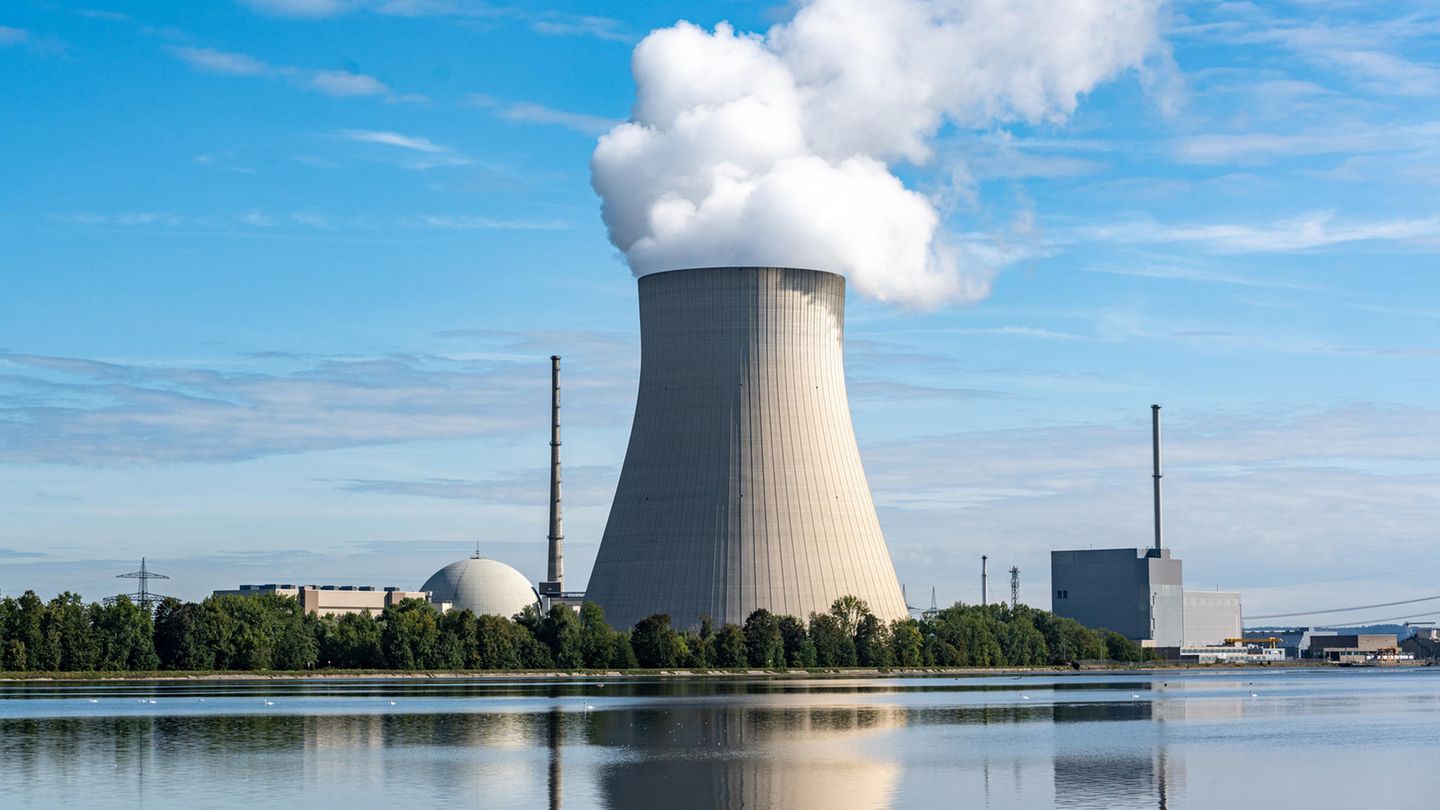Whether as a result of its own sanctions or by the Kremlin itself: stopping Russian gas and oil supplies could end in an energy crisis. Germany has to find a solution in advance – and in the short term that doesn’t lie in nuclear power.
In order to hit the Kremlin where it really hurts – namely its wallet – the West has imposed sanctions of unprecedented severity. Measures that the federal government has ducked away from for years have become reality within days – above all the premature end of the Nord Stream 2 gas pipeline.
But what if Russia and the West switch roles? What if the Kremlin itself turned off the gas supply to Germany and Europe? A scenario that until recently seemed unthinkable has now taken on an ominously clear shape. The past few weeks have shown how important it is to prepare for an emergency – no matter how unlikely it may be.
In order to forestall the threats from Moscow and the slide into an energy crisis, the federal government is discussing how Germany can become independent of Russian oil and gas supplies in the short term. One option comes to mind particularly quickly: why not go back to nuclear energy? What looks tempting at first glance is, on closer inspection, a zero-sum game – if at all.
Russia earns 368 million euros a day from natural gas supplies to the EU
Russia continues to be Germany’s most important energy supplier. In 2020, Germany imported 56.3 billion cubic meters of Russian natural gas – more than half of total imports. Added to this were around 28 million tons of Russian crude oil, which corresponds to a third of all imports. No wonder, then, that Germany has so far exempted the Russian energy sector from sanctions. “There is currently no other way to ensure Europe’s supply of energy for heat generation, for mobility, for power supply and for industry,” explains Chancellor Olaf Scholz (SPD).
However, energy exports provide the Kremlin, which is now largely isolated, with the income it urgently needs for the invasion of the neighboring country. Furthermore, Russia earns 368 million euros from natural gas deliveries to the EU – per day.
An import ban would still be conceivable – at least in part. According to the energy expert Claudia Kemfert from the German Institute for Economic Research (DIW), the Federal Republic could at least do without Russian coal and crude oil – because there are alternatives in Saudi Arabia, the United Arab Emirates and the growing oil shale sector in the USA.
The end of the last nuclear power plants in Germany is imminent
All of these considerations assume, however, that the decision to break away from Russian energy rests solely with the West. But what if Putin himself turns off the gas supply? On Monday, Russia’s Deputy Prime Minister Alexander Novak warned that Moscow could stop gas supplies via the Nord Stream 1 pipeline.
Germany and the EU must learn lessons from Russia’s recently demonstrated unpredictability: If the already skyrocketing energy prices degenerate into a real crisis, it is important to be prepared. However, it is at least doubtful that nuclear power could be the path to energy independence.
The three last remaining nuclear power plants in Germany (Isar 2, Emsland and Neckarwestheim 2) still produced almost twelve percent of German electricity in 2019. Compared to 1990, electricity generation from nuclear energy in Germany The age of nuclear energy is finally coming to an end in Germany: the last three nuclear power plants are scheduled to go offline at the end of 2022.
Extending the Atom runtimes does not pay off
The Ministry of Economy and the Environment quickly dismissed the idea that extending the service life could be the answer to Russian threats. Among other things, Bavaria’s Prime Minister Markus Söder (CSU) had called for this.

Longer terms are neither useful nor justifiable, said Environment Minister Steffi Lemke (Greens). A small contribution to the energy supply would be opposed to major economic, legal and safety risks.” In addition, the procurement, production and nuclear approval for the production of new fuel elements for a functional reactor core usually takes 18 to 24 months. In addition to the costs for continued operation, there are also the high costs costs for the disposal of additional amounts of radioactive waste.
That aside: an extension of the running times would not bring any additional electricity volumes in the winter of 2022/2023, but at the earliest in autumn 2023 after refilling with newly manufactured fuel rods, according to the ministries. An extension would also not be acceptable for safety reasons – the three remaining nuclear power plants have been in operation for over thirty years. In addition: Based on the applicable Atomic Energy Act, the nuclear power plants could not be operated beyond this year. It would be necessary to change the law and allocate new amounts of electricity. In short: it doesn’t pay off at the front or the back.
Source: Stern
David William is a talented author who has made a name for himself in the world of writing. He is a professional author who writes on a wide range of topics, from general interest to opinion news. David is currently working as a writer at 24 hours worlds where he brings his unique perspective and in-depth research to his articles, making them both informative and engaging.




